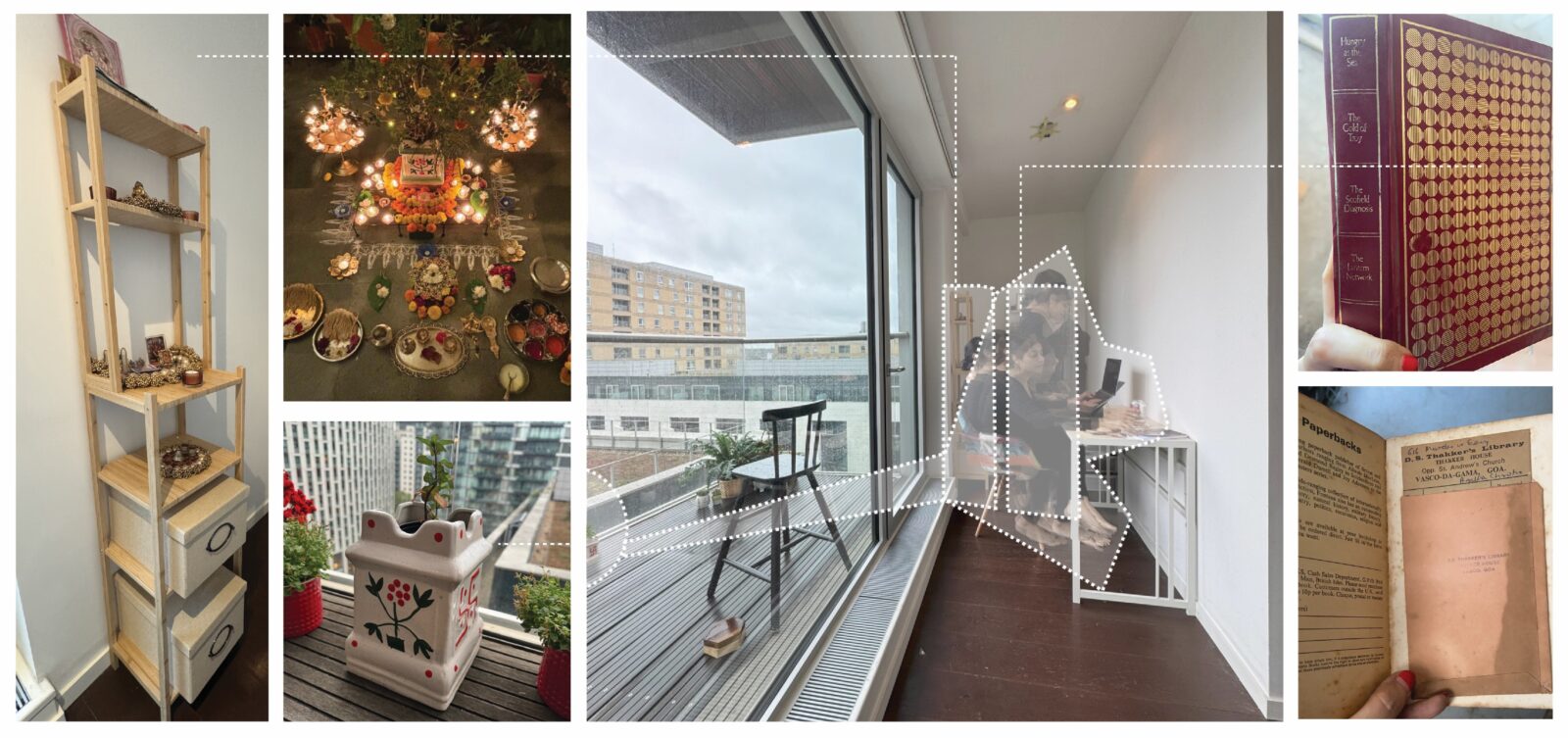Kanaka Dhirendra Thakker PhD

The Extended Body and its Extensions
The Extended Body: Investigating the negotiations between body and space
Supervisors: David Littlefield, Maja Jovic, Alessandro Ayuso
Challenging the existing definitions of the body, the thesis introduces a broader concept of the ‘body’ into the discourse of body and space through the concept of ‘The Extended Body’. This is seen as an evolving perimeter that the body constructs around it by using objects and surfaces as ‘Extensions’. The research aims to investigate the efficacy of the Extended Body as a medium by which space is experienced by the body.
Using an autoethnographic research method, I make a case study of my own body: that is the voluntarily displaced Hindu Migrant body. Drawing from cross-disciplinary research, the thesis considers concepts of body and space such as the Hindu mythology of the mangled, non-natural cosmic body ‘Purusha’ (Rykwert, 1996; Lang, 1883) and proposes discarding the ergonometric body as a reference for measure, instead offering the Extended Body as a dynamic measure of the world. By providing a qualitative and quantitative measure of the world in relation to oneself (Tavernor, 2007), the Extended Body creates the possibility of self-reflection to ask the Hindu philosophical question: ‘Ko ham?’ or ‘Who am I?’ (Javadekar, 1977)
The Extended Body is seen as a micro interior wherein space is ‘produced’ (Lefebvre, H.1991) by the social, cultural and technological processes that inform the choice of extensions. The research draws from the study of prosthesis and phantom limbs to establish a conceptual framework to identify the physical and non-physical extension of the body and the micro-interior. Seeing the Extended Body as more than a network of physical elements, the research aims to devise a new methodology to ‘capture’ the Extended Body through mapping to record the abstract as well as physical extensions.
